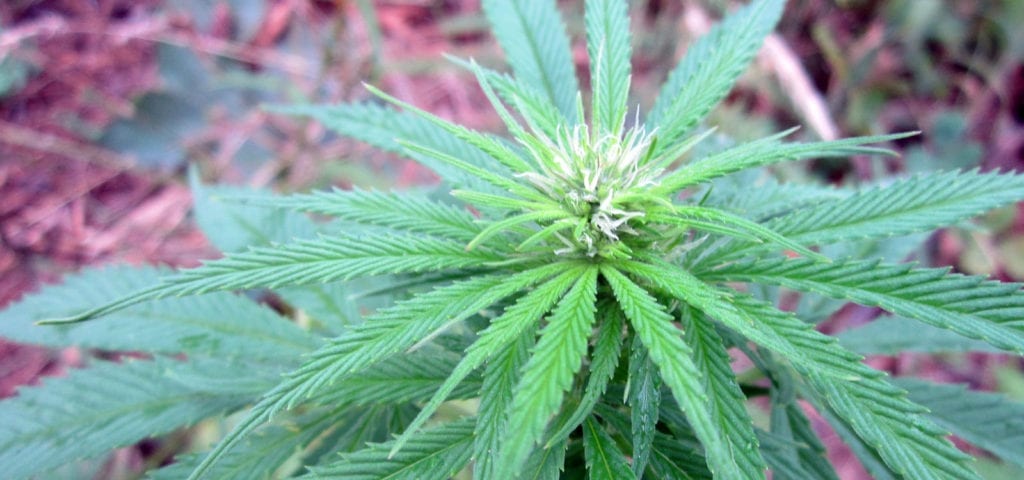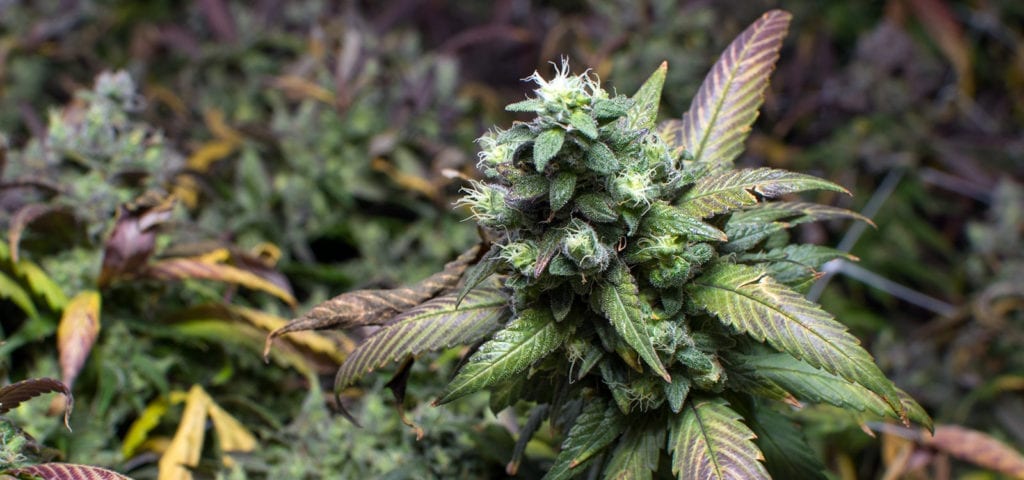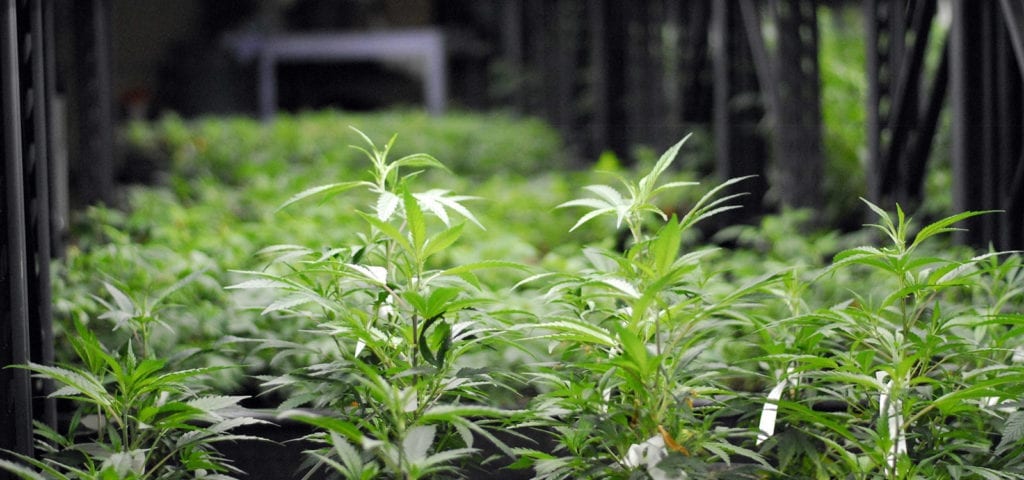Hazel Fruitman is the CEO of Cannabis Wallet, a company that specializes in unique mobile marketing strategies and customer engagement for companies operating in the cannabis space. Cannabis Wallet offers a mobile wallet pass that can be added to a mobile device and gives companies the ability to interact with their customers in a more tangible and personal way.
In this interview, Hazel joins our podcast host TG Branfalt to discuss the latest developments in marketing technology, how mobile marketing creates unique opportunities for engaging customers and building a loyal brand, Canada’s path toward nationwide adult-use legalization, and more!
Listen to the interview below, or keep scrolling down to read a full transcript of this week’s Ganjapreneur.com podcast episode.
Listen to the podcast:
Read the transcript:
TG Branfalt: Hey there. I’m your host TG Branfalt, you’re listening to the Ganjapreneur.com podcast where we try to bring you actionable information and normalize cannabis through the stories of Ganjapreneurs, activists and industry stakeholders. Today I’m joined by Hazel Fruitman, she is the CEO of Cannabis Wallet. How are you doing today Hazel?
Hazel Fruitman: I’m well, thanks for having me here Tim.
TG Branfalt: Super stoked to have you. Lot to talk about. Especially about the Cannabis Wallet and what you guys do over there. But before we get into that I want to hear about you. What’s your background, and how’d you end up in the cannabis space?
Hazel Fruitman: We’re going to get right into it, aren’t we Tim?
TG Branfalt: Right into it.
Hazel Fruitman: Yeah, well you know I’ve been marketing tech for many years. Way before Facebook was around. Before Twitter. It’s important to stay on top of the trends. It goes from social media, to having more of a mobile presence these days when it comes to technology. That’s where our mobile platform comes in. We have much success in our other verticals and their marketplaces. I found that we could have the same success in the cannabis space. We started using this for advocates to rally support. Remind friendlies of local events in the area for these advocates and just it just seemed like a natural fit for us. They used our mobile platform as an educational tool around that. We found advocates had very little success in getting their name, getting their promotion, whatever they were doing out there. So we really did feel a need with that.
TG Branfalt: So why don’t you tell us what Cannabis Wallet offers, the product, the services, just give us an overview.
Hazel Fruitman: Sure. So what Cannabis Wallet is, it’s a mobile wallet pass that sits inside an iPhone’s Apple Wallet, or if you have an Android phone it sits inside a third party app, inside Android. It engages and communicates messages to a mobile device. And that’s important for business of all kinds. Specially in the cannabis space where there’s does not seem to be a lot ways that you can promote yourself openly.
This mobile wallet pass has a front and a back to it. The front will have a company name, your company logo, and a tag line. The back of the pass has many features, this is where the magic happens as I like to say. There are social media links. Share features, all in one tap. If you have a podcast like this one, you can have a listen link go right to your latest episode. That’s also true for any YouTube or Facebook Live that you’re doing. As well as any call to action links that you might have. Any email or phone numbers, which is great if you’re a dispensary. As well as a navigation in one tap.
So if you are a dispensary and you’re located at 123 Main Street. With one tap you can go right into Google Maps and navi right there to the dispensary.
TG Branfalt: So you really, you’re covering every possible platform. You mentioned Twitter, Facebook, Google Maps all in that little tidbit.
Hazel Fruitman: Absolutely. That’s technology. That’s how you market technology.
TG Branfalt: So is there any other emerging technologies that you’re thinking about looking towards to integrate into this system?
Hazel Fruitman: Well, really anything, like an app could be integrated into it as well. Again, it sits inside Apple Wallet, so whatever Apple technologies are out there, that work within your iPhone, will work with this pass.
TG Branfalt: When you were developing this, because you do have cannabis in your name, did you get any push back from the various, you know the Apple, the Play store, or whatever the Apple marketplace is? I use Android. Did you have any push back or issues getting that listed?
Hazel Fruitman: Again, it’s not an app, a stand alone app. It’s part of Apple Wallet, which is a native app that’s already sitting in everyone’s iPhone. As soon as you get it out of the box Apple Wallet’s in that iPhone.
So these are just passes that are sitting inside. There hasn’t been any push back at all from Apple about this. We use this as a marketing tool, a message tool. And that’s what this platform provides.
TG Branfalt: So, traditional marketing issues, this is something that is very prevalent in this space. It’s requiring businesses to think outside the box in terms of marketing and advertising. Can you explain, you’ve explained what it does, but how does the Cannabis Wallet help fill that void of traditional marketing sort of being blacked out to cannabis businesses.
Hazel Fruitman: Yeah for sure. You know I was just talking to a friend the other day about this because he’s also worked in the digital space, marketing space for years, he does a lot of ad buys and paid search. And he’s also finding it difficult to promote his CBD product just right there on Facebook for example. Really, this is like building your email list. You would build this list, you build this pass, you add the pass from mobile user to mobile user. It’s a great way to have your targeted audience. So these people that want to hear from you. If you’re a dispensary, you want your patients to have this pass because now you have a way of marketing right to them. So you’re bypassing everything else.
TG Branfalt: That’s the emerging way right now for cannabis industries, is this targeted advertising because a lot of state laws are requiring that you have to be 21 or older to even view ads on a web page. So, is that, when you were developing this, were these laws something that you were taking into consideration? Or were you sort of preparing in advance, kind of seeing into the future that this might be the case?
Hazel Fruitman: As I mentioned, we are right on the marketing trends. We know what’s going on and I have educated myself in all the ways we can advertise in each state. In fact there’s a couple of states where this mobile wallet pass can not really be used. Because they just do not allow mobile devices to be used for advertising. So we avoid those states. The other states, you can promote within your four walls of your dispensary lets say. You can use the latest technology, a proximity marketing strategy to use with an iBeacon, that will ping you right as soon as you’re in a dispensary, that you know of your next promotion. Or any demos that an edible company may be doing that day. Inside the dispensary.
Also, if you’re an adult, you have a phone, you’re responsible enough to lock your phone. Your children should not be seeing your phone. My kids don’t know my, they can’t unlock my phone. So they’re not going to see it.
TG Branfalt: So there’s almost built in security with this.
Hazel Fruitman: Yeah. Yeah. If you’re responsible enough, of course.
TG Branfalt: So you offer this service to, you had said advocates at first, when did it become, how quickly did it become apparent to you that it would be useful for more than advocates?
Hazel Fruitman: Well we also promote this on different verticals as well. And we’ve seen how it works. And it just seemed like a natural fit. It’s a real great fit for events, local events, especially that dispensaries have. They can put on, like I was at 420 Vancouver, we had three booths running our passes. Telling them we’re at booth 150, just follow us and you’ll get pinged when you’re at your booth. So they get more foot traffic that way. That can also be applied to when we were at NCIA just a few weeks ago. The same kind of thing happened there.
TG Branfalt: So are you able to, or are the people, the business, the advocates that sign up with the platform, are they able to track the engagement?
Hazel Fruitman: Yes, you’re able to track the engagement by … Well first of all you can do number of installs, you know, how many people have installed. This pass gets saved in your phone nine out of ten times. People are not uninstalling this pass. And this pass, once you have a promotion on there, it can be changed right to a next promotion quite easily, just by filling out a form. So it’s very fluid in the way can jump from one campaign to the next. Lets say at NCIA, you could use this … They had a promotion on their flat screens of $99 special for their next event. I’m not sure how many attendees really signed up for that, I’m sure the conversion was pretty low. Now if they had used an event ticket, a mobile event ticket that we offer, the sign up conversion would have been higher because there is a call to action link. With a link right, you tap right on it and that would have the attendees sign up on the spot.
TG Branfalt: And so this is a very user-friendly app for businesses and consumers?
Hazel Fruitman: Absolutely it is. There’s nothing else out there. This really is a game changer and I’m so happy that I can bring this to the cannabis space.
TG Branfalt: You’ve been talking a bit about the NCIA cannabis business summit. I want to talk to you about your experience there. But before we do that we’ve got to take a short break, this is the Ganjapreneur.com podcast. I’m TG Branfalt.
This episode of the Ganjapreneur.com podcast is made possible by Name.com, a global provider of domain name, web hosting and email services. Every successful cannabis business needs an online presence. And every successful online presence begins with a domain. From your website to your email address, a good domain is easy for your customers to remember. It looks nice on a business card or billboard. And it reflects the true identity of the project it represents.
It’s important to reserve your domain early on when you are starting your business. As you may find that the .com for your preferred brand or concept has already been taken. If somebody has already purchased the ideal .com for your business they might be willing to sell it. But if they aren’t you may have to get creative with on of the new alternate domain extensions. Such as .co, .club, .shop or even .farm.
Reserve your domain name today at Name.com/Ganjapreneur. If you are a domain name investor or venture capital firm interested in acquiring or advertising premium cannabis domains, go to the Ganjapreneur domain market to browse a wide variety of names, including Strains.com, Cannabismedia.com, MJ.com and countless others.
Discover branding opportunities for your next startup. And learn about listing your premium domain names for sale at Ganjapreneur.com/domains. Sponsored by Name.com.
TG Branfalt: Hey, welcome back to the Ganjapreneur.com podcast. I’m your host TG Branfalt, here with Hazel Fruitman, CEO of Cannabis Wallet. Before the break you had mentioned NCIA, the cannabis business summit and I want to talk to you a bit about that. I haven’t had the pleasure of going to one of those, but I’ve heard from a lot of guests on this show, and a lot of the ganjapreneurs that I talk to, about the importance of this. And their opinion.
Why do you think, as a business owner and for the industry in general, that this event is so important to the industry?
Hazel Fruitman: Why this event is important to the industry?
TG Branfalt: The NCIA cannabis business summit.
Hazel Fruitman: Well there was a, there were some great key notes. There was a speaker there, the keynote was Vincente Fox. He was the Mexican president. And he had a lot to say, maybe not all clear because it was with a very thick accent, but he had a lot to say of how to bring this out of the black market. That’s the kind of quality you want from an event. Some of these events are not quite like that. And we’re just maturing as an industry so it was great that he was keynote for NCIA.
TG Branfalt: What were your take aways from your experience there? How was the interaction with the attendees, but also the vendor?
Hazel Fruitman: Everyone was great. Everyone was, they want to tell you about their product. They wanted to talk about it with you. They’re very excited about bringing this to the forefront. They never thought that it would happen so quickly that it’s happened. Even though it’s been, ’70s and ’80s advocates have been saying, promote the great stuff about cannabis.
Now we’re actually seeing it from a marketplace. So this show was actually very big on dirt and packaging. People were joking around that it was dirt and packaging show. They had soil from Humboldt. Which is great that they were selling. There’s light of lighting booths there. Humidifiers for your flower. A lot of CBD products, from edibles to health products. There was a lot going on.
It’s actually funny, there’s a … We were waiting in line for coffee, to get coffee and the people in front of us, they were saying, “Where’s the app for this? I don’t know what’s going on next. I lost the show guide.”
And we started laughing, I was with my business partner Kim, we started laughing because we’re like yes, we do know that there was a lack of communication throughout the show, attendees did not necessarily know where to go next. And a mobile wallet pass could actually solve that.
TG Branfalt: Explain how it would solve that issue. To me, I go to a lot of shows and for example I went to Riot Fest in Chicago last year and there was an app that told you when the next band was going on, what stage, and that was really helpful in a huge event, which obviously is different than a business summit. So how would the Cannabis Wallet fix that problem?
Hazel Fruitman: Sure. So an app costs money. An app has to be created, developed, figure out what you’re going to put on the app. And a lot of the canna-businesses coming up, even these events for cannabis, they don’t have the bank role for that. It’s costly. And that is just the start. There’s app discovery. It’s going within the policy of what Apple will put in their App store. You might not cut it. And you don’t know, it takes a lot of time and energy. And frankly, you’re not in the App business.
So mobile wallet pass does solve this issue because once the pass is put in your Apple Wallet you don’t have to see it again. And now and then producers can use it to lure sponsorships. It’s a value add for them. So if you’re, I don’t know, a cannabis dispensary, and you want to be really well known at NCIA, you could have had a lock screen mobile update, letting them know where you’re going to be. Letting them know what you’re promoting. Like, “Come out to the after party that night.”
Also, at the event, as an event producer, you can use it to, if there’s any speakers that have to change rooms for one reason or another, lets say Room A has a panel of speakers but Room A is being closed off for one reason. You can tell them to go to Room B instead. That will also be seen right on the lock screen of any mobile device.
The next, exactly like you said when you went to go see your bands, you can have the bands show up, you can have the speaker show up, or the next panel that’s coming on. Whatever the track is, these passes can also, you can have more than one. So you can have one for track A panel. Have one for track B. No matter what your attendees want to see, and they can be updated.
TG Branfalt: You had mentioned earlier that the App, the Cannabis Wallet can stream Facebook live. Would this theoretically be able to allow people who weren’t able to attend the show, or are too far away, or in other countries, because the cannabis business in Canada is enormous, would it allow them to get a glimpse into these events?
Hazel Fruitman: Right. So the URL for the Facebook Live, it’s a URL, it’s a link. That will be put on the back of the pass. Now, with one tap, you could click that on, whether you’re at the event or not, and it would take you right to Facebook Live.
TG Branfalt: There’s a lot of integration here. To have all that in one place, even for a guy whose admittedly very low tech, this seems like something that you would want to have, not just for something like a summit, but as your shopping, as you’re wandering around any city with recreational or medical dispensary’s.
Hazel Fruitman: Absolutely. It works for in the edible space, it works for delivery services as well. That work in conjunction with dispensary’s. Can let them know what products are available. Or where they’re going to be in the area.
TG Branfalt: Even delivery services. I mean you’ve really covered basically every facet. What states, the states that you’ve rolled this out, which cities are the most popular, using the most right now?
Hazel Fruitman: We’re finding in California, in Washington and Oregon. I’m actually up in BC, Canada. And dispensarys are using it up there. So we opened up an office there and it’s been working really great for us.
TG Branfalt: That’s incredible. You’ve opened up, you’ve rolled this out in Canada. So you’ve gone international with this already?
Hazel Fruitman: Absolutely. I’m Canadian. I was living down in California and I decided that it’s best for our business to move up here and get this done.
TG Branfalt: I want to talk to you a bit more about Canada, and your advice for entrepreneurs. But before we get into that, we’ll our last break. This is Ganjapreneur.com podcast, I’m TG Branfalt.
At Ganjapreneur, we have heard from dozens of cannabis business owners who have encountered the issue of “canna-bias”. Which is when a mainstream business, whether a landlord, bank or some other provider of vital business services, refuses to do business with them simply because of their association with cannabis.
We have even heard stories of businesses being unable to provide health and life insurance for their employees because the insurance providers were too afraid to work with them. We believe that this fear is totally unreasonable, and that cannabis business owners deserve access to the same services and resources that other business are afforded. That they should be able to hire consultation to help them follow the letter of the law in their business endeavors. And that they should be able to provide employee benefits without needing to compromise on the quality of coverage they can offer.
This is why we created the Ganjapreneur.com business directory. A resource for cannabis professionals to find and connect with service providers who are cannabis friendly, and who are actively seeking cannabis industry clients.
If you are considering hiring a business consultant, lawyer, accountant, web designer or any other ancillary service for your business, go to Ganjapreneur.com/businesses to browse hundreds of agencies, firms and organizations who support cannabis legalization and who want to help you grow your business.
With so many options to choose from in each service category, you will be able to browse company profiles and do research on multiple companies in advance. So you can find the provider who is the best fit for your particular need. Our business service directory is intended to be a useful and well-maintained resource. Which is why we individually vet each listing that is submitted.
If you are a business service provider who wants to work with cannabis clients you may be a good fit for our service directory. Go to Ganjapreneur.com/businesses to create your profile and start connecting with cannabis entrepreneurs today.
TG Branfalt: Welcome back to the Ganjapreneur.com podcast, I’m your host TG Branfalt here with Hazel Fruitman, CEO of Cannabis Wallet.
Tell me about what’s going on in Canada. We know that the broad, federal, recreational adult use, what have you, is currently being debated. This was a big campaign promise of the Prime Minister, Justin Trudeau, what are you seeing up there in Canada? What are you anticipating in terms of regulations. Just kind of give us the dirt on what’s going on in Canada.
Hazel Fruitman: We’ll be here a while. But yeah, I’ll start off. Now, we are going recreational in Canada, starting July 1st of next year. There’s not a lot that government has come out with. They did come out with a report several months ago on what we should expect. And that should be harsh penalties for those who are under the influence and are driving. For youths, they don’t know if it’s going to be 19 or under or 21 or under yet. They’re still deciding that. What would happen if adults were to provide cannabis to youths, you’ll go to jail. Things like that.
No advertising. Plain packaging. You can advertise within the walls of the dispensary but that’s about it. They don’t want to be like the way the alcohol industry went. Where they’re advertising towards children. They want to avoid that from the get go.
They’re also talking about growing in your own domicile. So you can grow four plants, a meter high. Now, that’s also some cause for concern because they’re not, so they’re talking about a meter high. But how wide? You don’t know how wide that could be.
Also, another point with that is landlords do not necessarily want people growing in their homes. So, there’s that as well.
What else, this is all from the top of my head. I’m just trying to think.
TG Branfalt: Is it going to be similar to the medical set up in terms of mail order? Is it going to be that stringently regulated?
Hazel Fruitman: I believe it will be. Right now you can’t do mail order. Technically, you can get caught and it is a federal crime. What I do know is that it does happen. There is mail order. Lots of online dispensary are popping up through that.
It’s also very different from province to province. I’m actually from Ontario, I’m in Ontario right now. But I’m living out in BC at the moment. And in BC they have dispensary that are open within the city of Vancouver. That are actually running and operating. But if you try to do that in Toronto, or the Toronto area, you are going to get shut down pretty quick. There’s a different mentality here.
There’s also, we also have these licensed producers. There’s 36, 38 licensed producers in Canada. And they’re allowed to grow medical marijuana. And now, we’re seeing these being run by former MPP’s, people in government who might have the ear of Trudeau. But then there’s these cannabis advocates, like Mark Emery who runs Cannabis Culture, and they’re getting arrested for having dispensary’s open.
And these are advocates from, that have been here for 30, 40 years now. That want to see cannabis legalized in a way that could be for everyone. And they’re the ones getting arrested still. So there’s this duplicity right now with the government.
TG Branfalt: Are Canadian citizens on the whole, are they supportive of legalization? Or is it sort of like it is in the US where you have a contingent of citizens who really do, they don’t even want medical. And then you have what is the majority, according to several polls, that want full rec. Is there still that kind of disconnect among Canadian citizens?
Hazel Fruitman: It does happen. There is a disconnect. But I think we’re a little bit more relaxed about it. People are finding that’s the way to go. When they have their pharmaceutical medicines aren’t working. I know at this doctor in Victoria, and he’s seeing these elderly people who come to them because they’re like, I don’t want to use these pharmaceuticals anymore. I need something for the pain, but I don’t like the way it makes me feel. They’re using these CBD products and they love it. And they’re not going back to any pharmaceuticals. So, there is starting to be a change, yes.
TG Branfalt: You had mentioned earlier that the government plan, one of the proposals allows no advertising. So, is it going to, is the whole advertising sector of the industry going to rely, in your opinion, on technology? And direct marketing?
Hazel Fruitman: I believe so. That is the way that it’s going to go. Just due to the policies that are going to be in place. What they haven’t said, actually, in all this, is how really they’re going to stop any pesticides or chemicals on plants. They haven’t really discussed those things. And unlike Washington, they haven’t discussed what happens when you have grown the plant, and you have to keep track of it from, they call it seed to sale. There’s no comment on that yet from the government. So those are things I’m interested in seeing as well. What they’re going to do.
TG Branfalt: We’ll all be, the entire US industry is going to be watching as this rolls out with bated breath. The success of some of the Canadian companies who are already working out in Europe and exporting cannabis, that’s really … One of the things when I talk to growers here, they say we would love to get involved with the European markets. Are you sort of looking at those markets as well? For your, for Cannabis Wallet? Is that a consideration that you’re making as Canadian cannabis companies are reaching out overseas?
Hazel Fruitman: Yes, absolutely. I’m speaking to a lot of companies that are in Israel actually. They seem to be a little bit ahead of the market. They like what opportunities we can provide with our mobile ad platform. So, yeah, we’ve been in talks with them for a while.
TG Branfalt: Last thing I want to talk to you a bit about is some advice for entrepreneurs, both as an entrepreneur yourself and somebody who is a marketing guru. First lets start with, what is your advice to cannabis companies who are sort of stuck without marketing options? What advice do you have for them?
Hazel Fruitman: First, not to give up. Keep hustling. And, network. You find good people. You work with good people. You build relationships. Now that we know each other Tim, I’m going to tell everybody how great you are. You’re going to tell everybody how great I am. This is how you network. So you’re going to do that with other businesses. If I have a brownie edible that’s amazing, and I want it to work with, I don’t know, another product, you put them together.
Our mobile wallet pass will let you do that as well. Because you can go fluid from one pass to another. And promote each other that way.
TG Branfalt: That’s a very interesting concept. You don’t really, in a lot of industries you don’t hear you gotta work with what could be your competitors in a way.
Hazel Fruitman: Well I don’t see why not. We actually have these passes being used by these three stores in New Jersey. One is a wine shop. One’s a cheese shop and one is a, I think it’s a deli, I can’t remember. But they all work with one another. Like when you go to the cheese shop they say come to the deli and we match your tastings. Or go to the wine shop and you’ll get 20% off if you go to the cheese shop across the street. So they work in promotion of each other, using these passes. This is an actual example that’s happening. There’s no reason why we can’t take that, and use it in the cannabis space.
TG Branfalt: That’s something that you’re probably going to see a lot more of as states start considering social use initiatives or programs. There’s already reports of tastings and pairings and that sort of thing in Colorado, which has a much more mature market than the rest of the country.
As an entrepreneur yourself, what is your advice to other entrepreneurs, not just those that are wanting to get into the cannabis space, but also those wanting to get into the tech space?
Hazel Fruitman: I stay up on trends. I’m constantly reading tech news. Also, I’m trying different things. I’m trying different ways of getting traffic. I’m trying different ways to promote ourselves, so there’s a lot of trial and error when you deal with marketing tech.
TG Branfalt: Finally, where can listeners find out more about Cannabis Wallet?
Hazel Fruitman: Absolutely, so they can, we actually have an E-Book. It’s called Grow your Business. It’s on our site, cannabiswallet.net. They can just sign up and we’ll download it to you and you can find out more details of how to use Cannabis Wallet.
TG Branfalt: Well Hazel I want to thank you so much for taking the time to come on this show. It’s been very enlightening, especially for a Luddite such as myself. Definitely stay in touch with regard to Canada. Because I’d love to get your insight as that market rolls out.
Hazel Fruitman: Absolutely, yes. Of course we’ll stay in touch about that. It’s been a pleasure Tim, thank you so much for having me.
TG Branfalt: Thank you.
You can find more episodes of Ganjapreneur.com podcasts in the podcast section of Ganjapreneur.com. And in the Apple iTunes Store. On the Ganjapreneur.com website you’ll find the latest cannabis news and cannabis jobs updated daily, along with transcripts of this podcast. You can also download the Ganjapreneur.com app in iTunes and Google Play. This episode was engineered by Jeremy Sebastiano, I’ve been your host, TG Branfalt.



























